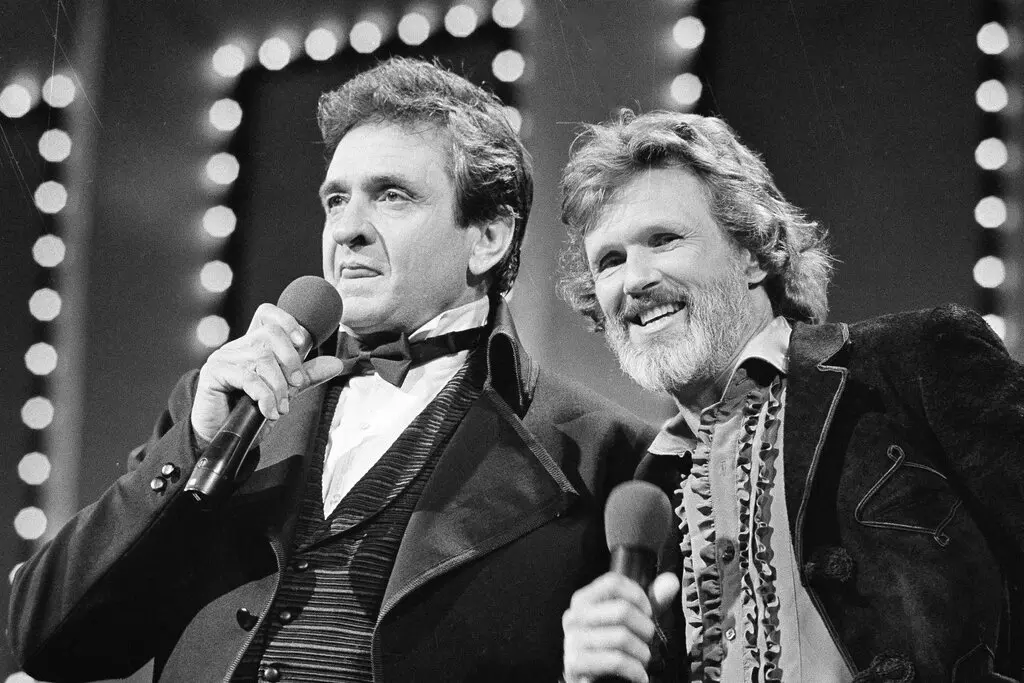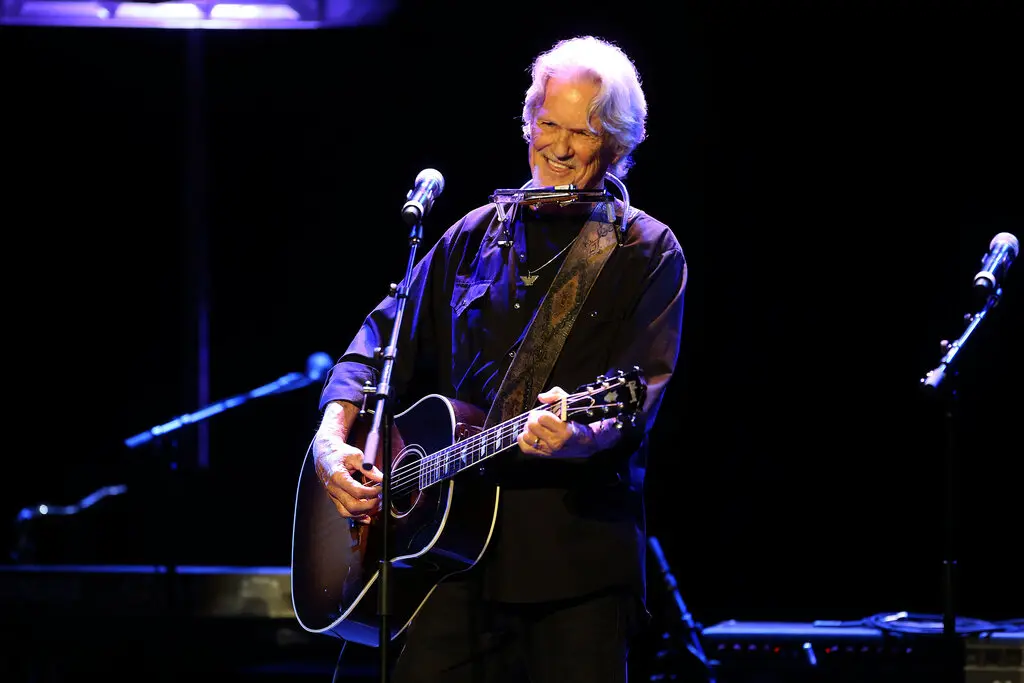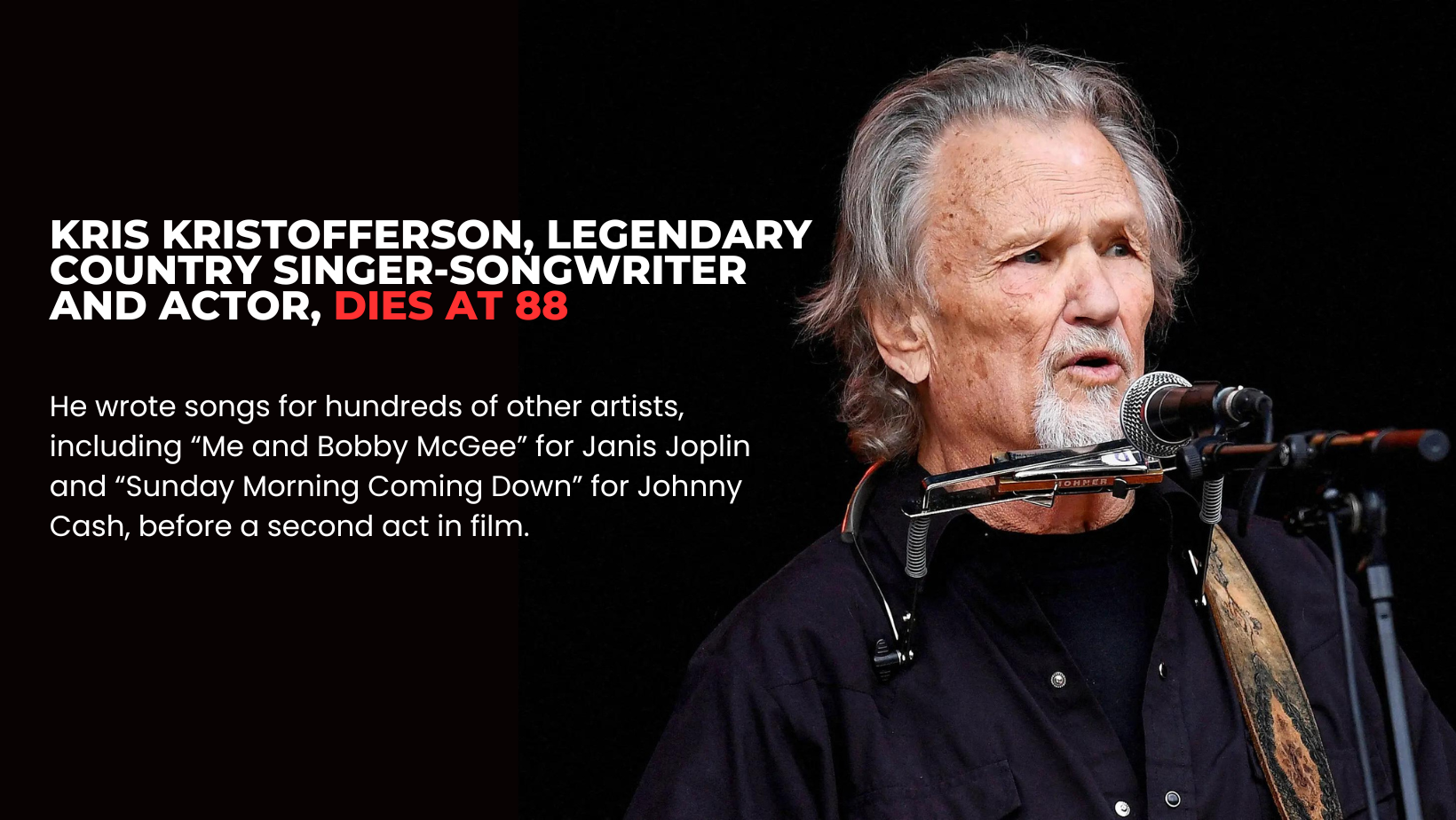
Kris Kristofferson dead at 88: Kris Kristofferson, the iconic country singer-songwriter and Hollywood actor, has died at the age of 88. Known for his groundbreaking hits like “Me and Bobby McGee” and “Sunday Morning Coming Down,” Kristofferson passed away at his home in Maui, Hawaii. While his death has been confirmed by a family representative, no official cause has been released, leaving many to wonder—how did Kris Kristofferson die?
Breakthrough Hits and the Rise of a Country Icon
Kristofferson’s rise to fame came in the early 1970s when Ray Price’s rendition of his bittersweet ballad “For the Good Times” topped the country charts. That same year, Johnny Cash turned Kristofferson’s “Sunday Morning Coming Down” into a No. 1 hit, cementing his place as a songwriting genius. The song’s haunting depiction of a lonely man grappling with spiritual emptiness struck a chord with audiences and remains one of his most beloved compositions.

His most iconic lyric, “Freedom’s just another word for nothin’ left to lose,” from “Me and Bobby McGee,” continues to resonate with fans worldwide. Janis Joplin’s posthumous version of the song became a No. 1 hit in 1971, further solidifying Kristofferson’s legacy as a master lyricist.
The Maverick Spirit of Nashville
In the early 1970s, Kristofferson became a central figure in Nashville’s outlaw country movement, rubbing shoulders with legends like Willie Nelson and Roger Miller. This period was one of creative freedom, where Kristofferson’s unpolished, deeply emotional writing style found its perfect home.
Reflecting on that time, Kristofferson once likened it to “Paris in the ’20s,” an era of artistic innovation where the Nashville scene was ablaze with excitement and possibility.
From Songwriting to Hollywood Stardom

While his songwriting made him famous, Kris Kristofferson also enjoyed a long and successful acting career. His breakout role came in “Pat Garrett & Billy the Kid” (1973), followed by a Golden Globe-winning performance alongside Barbra Streisand in the 1976 remake of “A Star Is Born.” With his rugged good looks and commanding presence, Kristofferson transitioned seamlessly to the big screen, starring in over 50 films, including “Heaven’s Gate” (1980) and the critically acclaimed “Lone Star” (1996).
Kristofferson’s Legacy: A Lifelong Artist and Rebel
Despite his success in Hollywood, Kris Kristofferson remained first and foremost a songwriter. His later years were marked by continued activism through music, often writing songs that spoke out against social injustices. He remained committed to his art until health issues, including heart bypass surgery and a long battle with Lyme disease, slowed him down.
Kristofferson was inducted into the Country Music Hall of Fame in 2004, solidifying his position as one of the most influential artists in country music history. His final hit as a recording artist came in 1985 with “The Highwayman,” a song performed by the outlaw supergroup, The Highwaymen, which featured his close friends Johnny Cash, Willie Nelson, and Waylon Jennings.
A Personal Journey of Love, Loss, and Music
Born on June 22, 1936, in Brownsville, Texas, Kristofferson’s early life was marked by academic and athletic achievements. He was a Rhodes scholar and U.S. Army captain before leaving it all behind to pursue his dream of becoming a songwriter in Nashville — a decision that initially alienated him from his family.

Kristofferson is survived by his wife, Lisa Meyers, with whom he shared over 40 years of marriage, along with their five children. He also leaves behind three children from his previous marriages and seven grandchildren.
In one of his final interviews, reflecting on his career, he said: “I wouldn’t have done any of it if it weren’t for writing. Writing is what gave me everything—my music, my movies, my life.”
Kristofferson’s unparalleled contributions to both music and film ensure his legacy will endure for generations to come. Fans and fellow musicians alike mourn the loss of a true country music legend, whose songs will continue to speak to the human experience in all its pain, beauty, and complexity.
